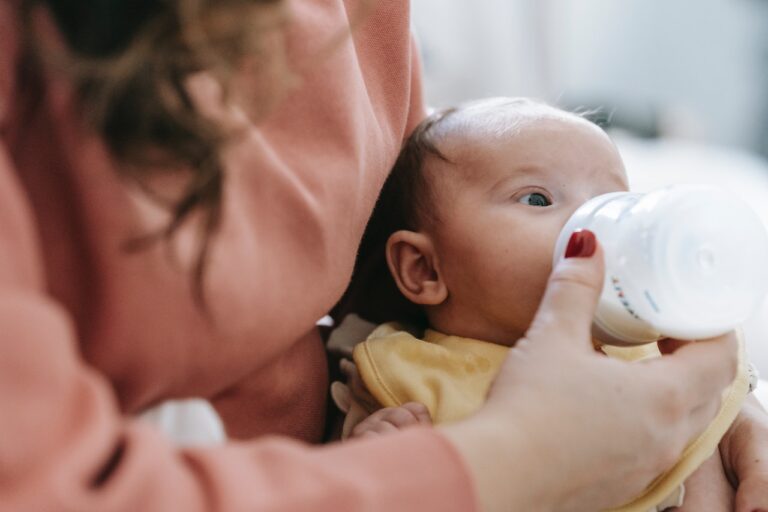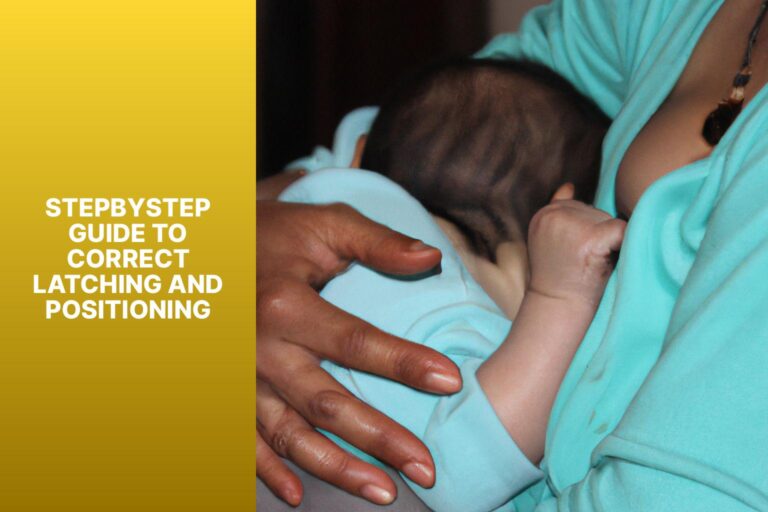When is it Too Late to Start Breastfeeding?
Breastfeeding has many benefits for mothers and their children. Breast milk is the best (and only) source of nutrients babies need. Breast milk also has illness-fighting properties that can lower the risks of asthma, type-1 diabetes, and SIDS in infants.
Mothers also benefit when they breastfeed their kids. Breastfeeding lowers the chances of breast and ovarian cancer, heart disease, and type-2 diabetes. Emotionally speaking, breastfeeding pushes moms and kids to bond and grow a close attachment to one another.
However, some mothers might reach a roadblock that prevents them from producing milk. Some moms might have to stop breastfeeding for health or personal reasons, while others choose not to before giving birth. Breastfeeding is a very personal decision, and many moms have reasons why they want to stop.
But what if you want to start breastfeeding at a later date? Is there an expiration date when you can use your milk supply, or can you press play anytime?
When Does Lactation Start for Mothers?
Lactation starts way before you even give birth. Moms usually begin producing breast milk at around 12 to 18 weeks of pregnancy. During this time, you might experience breast growth and tenderness. You might even experience leaking during your third trimester!
During your first feeding, your baby will be consuming a substance called colostrum. Colostrum is rich in protein and antibodies, which help strengthen your baby’s immune system. You’ll make colostrum for the first 2 to 5 days of feeding and then gradually produce regular breast milk.
However, some factors might cause delays in milk production. Women who had a C-section might produce breast milk later than women who had a vaginal delivery. Stress can also make it harder for women to produce breast milk.
Certain health conditions can also affect the body’s efficiency at making breast milk. Issues in the thyroid, infections, type-2 diabetes, and obesity can affect a mom’s milk supply.
Why Do Some Moms Stop Breastfeeding?
Breastfeeding is a personal choice for many mothers. Some mothers can’t breastfeed their babies, while others might need to stop and wean off early.
Certain health conditions cause low breast milk supply and make it hard for moms to continue breastfeeding. Severe postpartum depression doesn’t only affect a mother’s mental health but also their physical well-being.
Substance use can cause some issues when it comes to breastfeeding. Mothers who use recreational drugs should avoid breastfeeding because these substances can find their way into breast milk. Children exposed to these substances are more likely to cause developmental delays, neurological diseases, and even death.
Children who have difficulty latching onto the breast are also less likely to receive breast milk. Adoptive mothers are likewise unable to feed children through breastfeeding.
Some mothers who can breastfeed might stop early because of many reasons. Working moms might have a short maternity leave and need to return to work immediately. Others might have a medical condition that allows them to produce breast milk but have a limited supply.
When is it Too Late to Start Breastfeeding?
There is no right or wrong time to start breastfeeding. You can begin the process of relactation days, weeks, or even months after stopping. Even adoptive moms can lactate and breastfeed their babies.
Relactating might come quicker to other moms, though. Moms who started breastfeeding 4 to 6 weeks postpartum and stopped are more likely to have an easier time lactating than other moms. With that said, with enough patience and dedication, you can produce breast milk.
There’s no telling when you will start relactating. However, you can stimulate the breast to start production. Below are some ways on how you can successfully begin your relactation journey.
How Can I Successfully Relactate?
When you stop breastfeeding, your body signals to the brain to stop filling the milk supply. With no demands for your breast milk, milk gradually goes down. With relactation, you need to stimulate your body to start producing breast milk again.
Your baby plays a crucial role in relactation. You want as much skin-to-skin contact with your child to stimulate those breast milk-making hormones. Always keep your kid close to your body, even if you’re not breastfeeding them.
Breast pumps are also handy at stimulating milk production. Pumping 2 to 3 hours a day immensely helps.
Alternatively, offer your breast to your baby instead of a pacifier or a bottle. Babies love to suck on something as a self-soothing process. Let them suck on your breast to stimulate milk production.
Finally, eat a nutritious diet and practice healthy living. If you have a medical condition, make sure to regularly take medication.
Don’t feel discouraged if you’re unable to produce breast milk immediately. Relactation requires a lot of dedication. Any amount of breast milk can provide ample nutrition to your baby. If you struggle to keep them satiated with only breast milk, you can combine breastfeeding with bottle-feeding or solid food.
FAQ:
What causes delays in breast milk production?
Certain conditions can cause delays in breast milk production, like obesity and thyroid diseases. Environmental factors like stress can also cause delays.
I can’t produce breast milk, but my baby still can’t eat solid food. What can I do?
If relactation is not working for you, then you can choose to exclusively bottle-feed your infant. While breast milk is still the preferred option for many experts, formulas can also provide health benefits and help non-lactating moms.
Conclusion
There are many reasons why moms might choose to relactate after a long time of not breastfeeding. Whether it’s a voluntary decision or an uncontrollable circumstance, relactation is possible for most women. Even mothers that never experienced pregnancy can lactate too!
Relactation is a process that requires time and patience. Mothers can promote breast milk production by having as much skin-to-skin interaction with their child and using a breast pump. Relactation time varies from mother to mother.
Breast milk is one of the healthiest food a growing child will ever have. While breastfeeding is not for everyone, there is no harm in trying to relactate again.










